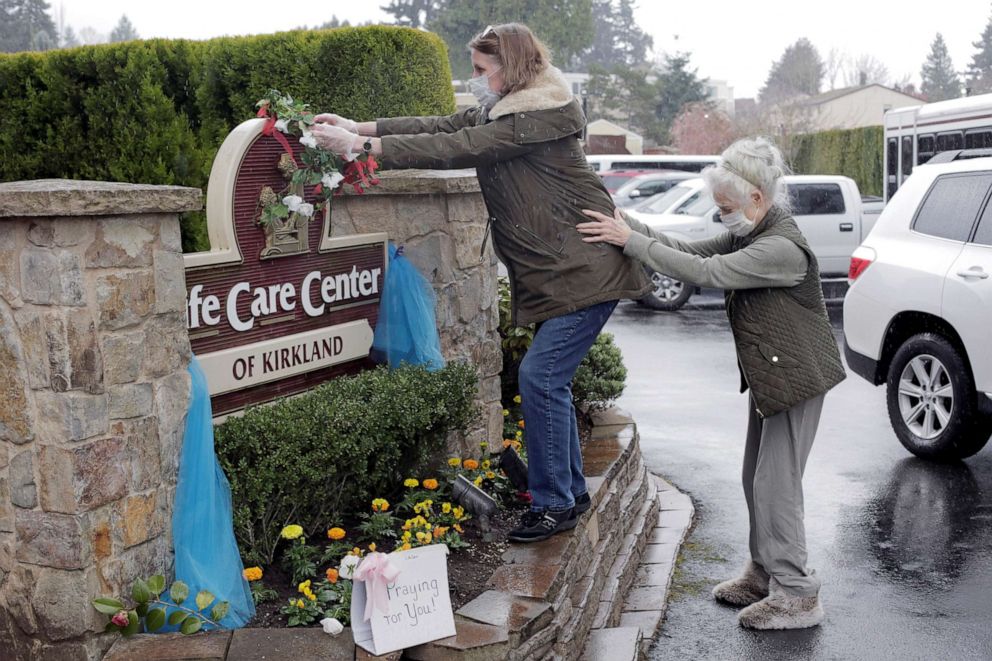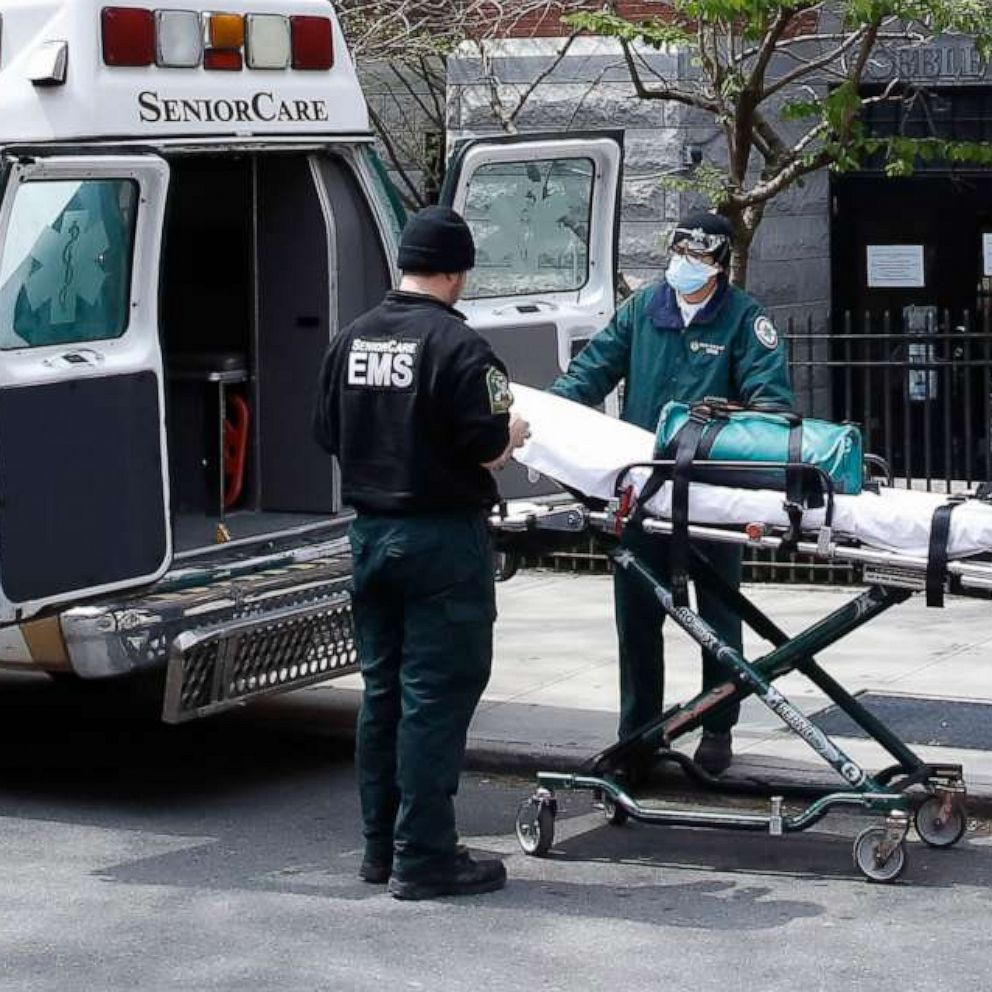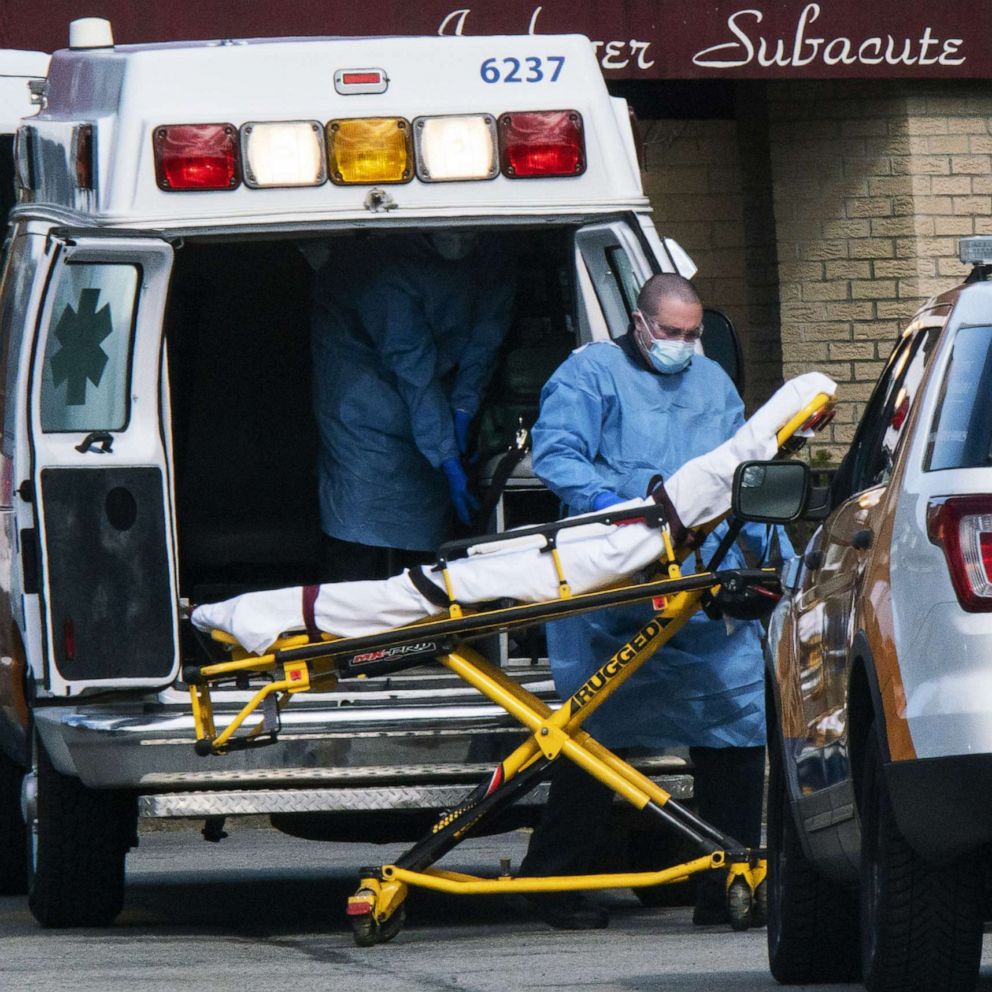Coronavirus crosses grim milestone of 10,000 deaths in US nursing homes
Nursing homes account for at least one-fifth of COVID-19 fatalities nationwide.
The number of nursing home residents who have succumbed to the novel coronavirus in the United States has surpassed 10,000, a new survey of state data compiled by ABC News has found.
This surge in deaths, accounting for about 20% of all coronavirus fatalities in the nation, comes as nursing homes across the country continue to struggle for effective strategies to fight the virus, which can quickly overwhelm the communal settings once it enters.
There have been at least 10,631 deaths of long-term care residents, but there are likely many more. The statistics were compiled using official data from states' departments of health and governor's offices in 28 states and the District of Columbia, with the other states not yet reporting the numbers or not responding to requests for the information.

Earlier this week, the leaders at the Centers for Medicare and Medicaid announced they would begin requiring nursing care facilities to report cases of COVID-19 directly to health officials there and at the Centers for Disease Control and Prevention. So far, neither agency has released comprehensive national data on nursing home cases or fatalities during the outbreak.
As the death count rises, some critics have called on the Trump administration to focus more attention on the long-term care facilities where the virus has been claiming some of the nation's most vulnerable residents.
"Clearly, the federal government has been slow," Sen. Ron Wyden, an Oregon Democrat, told ABC News. "They always had one excuse after another. … They said, 'Well, we're not really responsible. The states are responsible to this day.'"
As the agency charged with monitoring nursing care, the Centers for Medicare and Medicaid has issued several alerts throughout the pandemic, calling on nursing homes to restrict visitation and to comply with infection-control regulations. The agency’s administrator, Seema Verma, told ABC News in an interview Thursday that she believes the administration has had a "very strong response" to the crisis.
"Our administration has acted very early on to make sure that we're doing everything that we can to support nursing homes on the ground level," Verma said. "If you hear from the industry, they've actually praised the efforts of the Trump administration and the things that we've done to support their efforts and to do everything that we can to keep patients safe."
Verma pointed to guidance the administration has given to state and local officials to allocate resources directly to nursing homes.
"I can't speak to individual facilities, but what we've urged state and local leaders to do is to work with their nursing homes to make sure that they have the supplies that they need," Verma said.

In some states, governors have responded to the call. In West Virginia, Gov. Jim Justice recently required testing for all residents of nursing home facilities. In Maryland, Gov. Larry Hogan implemented "strike teams" designed to provide additional support for nursing homes.
The first major outbreak of COVID-19 in the nation was at the Kirkland Life Care Center in Washington state. In January, 911 calls began rolling in from the center. Those at Kirkland discovered that the virus was very difficult to contain. In a few short weeks, 37 lives were lost, an early sign of what was to come in similar facilities around the nation.
In early March, the administration expanded warnings to nursing homes across the country to begin screening visitors for possible respiratory illnesses.
At Canterbury Rehabilitation Center in Virginia where COVID-19 would go on to claim the lives of 49 residents, health officials looked to Kirkland Life Care Center for guidance on how to manage outbreaks in elder-care facilities. But Virginia health officials said they failed to anticipate the potential for the virus to spread between residents who were not showing symptoms of infection.
"I was not necessarily surprised by the number, the number of total positives, but rather it was the number of people who were positive that were not showing symptoms at all," said Dr. Danny Avula, the public health director for Richmond, Virginia, who was tasked with helping to manage the spread of COVID-19 at Canterbury.
Mark Parkinson, the president of the American Health Care Association and an advocate for nursing homes, said the rapid spread of the disease in nursing homes is revealing vulnerabilities that will need to be addressed even after the risk of coronavirus is less imminent.
He pointed to flaws in nursing home regulations and surveying as possible areas of improvement.
"I think one of the things that hopefully we learn is that the survey process that’s been used for nursing homes throughout the years is just broken; it’s not revealing the right things," Parkinson said. "We’re not focusing on the right things. And I hope that we can come out of it with a much more collaborative approach that works better for residents and the system that we currently have."
ABC News' Katherine Faulders, Olivia Rubin and Soorin Kim contributed to this report.









